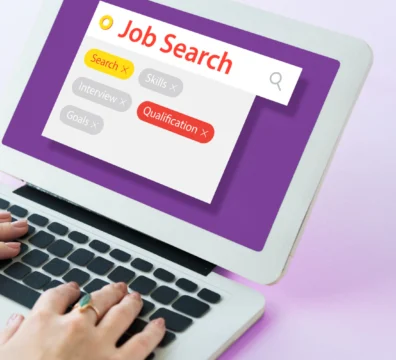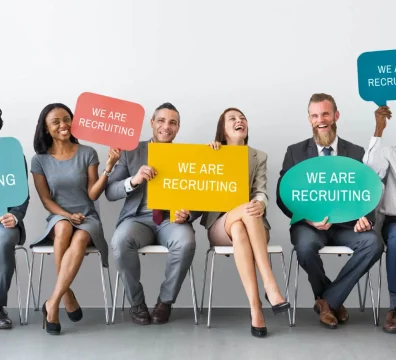Are your employees leaving jobs or being unproductive? One big reason may be that they aren’t happy or satisfied working with you, and implementing an employee rewards and recognition programme can be your solution.
Every employee deserves appreciation in the workplace that motivates them to work better and be productive.
This article shares a mini guide to understanding and successfully implementing employee recognition programmes.
What is an Employee Rewards and Recognition Programme?
In a recent study, nearly 79% of employees said they quit a job due to a lack of appreciation from leaders. Therefore, more and more companies are investing in different types of employee recognition programs. It is mainly a company’s system of recognising employees’ actions and achievements.
A few examples of employee rewards and recognition programme in organisations include
- Monetary incentives,
- Personalised gifts,
- Special team events
- Birthday celebrations,
- Hosting employee appreciation events,
- Weekly or monthly employee spotlights
Mostly, recognition is offered to internal employees with points redeemable for rewards. Such a program aims to boost employee morale, improve performance, and retain employees longer.
Understanding an Employee Rewards And Recognition Programme
Most recruiters confuse employee rewards and recognition as they sound similar. However, recognition encompasses social and monetary recognition, whereas rewards typically refer to monetary recognition.
Let us understand their difference from the table below:
Rewards | Recognition |
| These are tangible and mostly have monetary or some sort of monetary value attached to them. | This is intangible, and its value is not measurable, but it leaves a huge positive impact on employees. |
| These are usually transactional in nature and are an excellent way to attract top talents to your organization. | These are primarily relational in nature, where you build an emotional connection with employees, and are an ideal way to retain top talents. |
Benefits of Implementing an Employee Rewards and Recognition Programme
When you invest in an employee rewards and recognition programme, it returns excellent benefits for your organisation. We have listed a few benefits of implementing such programmes.
Better Employee Engagement
Employee recognition and organisation is the top driver of employee engagement. It makes your employees feel valued and more likely to fulfil their roles and be productive. Thus, it enhances the overall productivity of your company.
Manage Equity
When you set a fixed employee rewards and recognition programme, all your employees will be treated equally. Thus, it encourages fairness and transparency in handling employees from diverse backgrounds and domains.
A recent study depicts that workplace diversity boosts creativity and innovation, improving decision-making and ensuring a professional work environment.
Improve Retention
Though numerous reasons exist for an employee to leave your company, employee satisfaction is essential. By implementing such programs, you can recognise employee achievements and make them emotionally invested in the job. It ensures they stay longer in your business and be productive.
Gain a Competitive Edge
Implementing rewards and recognition programs in business can promote healthy employee competition. It implements a structured and meaningful culture of recognition, ensuring your employees that their hard work never goes unnoticed.
Additionally, it helps your company achieve its goals faster and focuses on employees’ personal and professional development.
How to Design a Holistic Employee Rewards and Recognition Programme?
You must go through numerous steps before successfully implementing reward and recognition schemes. Furthermore, implementing the program is not the end; you need to educate your employees about it and regularly check the strategy.
Therefore, we have listed a few steps to designing a holistic employee rewards and recognition programme in your organisation.
Define Your Vision and Program’s Success Metrics
Before implementing employee recognition programs, you must write down your company goals and objectives. For example, you may introduce a programme to improve employee engagement or build a better company culture.
Additionally, you must research the benefits a recognition program can bring to your business and understand the best practices before implementing them. Moreover, having a clear and transparent budget for such programs is essential.
Build a Team to Implement the Programme
You must appoint a few people to build a committee responsible for implementing, managing, and establishing an employee reward and recognition programme. They must understand the program’s benefits and believe in company values.
Understand the Types of Employee Recognition
Different types of employee recognition and rewards can be implemented in your business. It includes public recognition, private recognition, promotion, and monetary benefits. One survey found that 91% of HR professionals believe employee recognition and rewards make them more likely to stay in the company longer.
Ask for Feedback
You can ask your employees to fill out an employee satisfaction survey form. It gives you an idea about how satisfied they are and what they expect from you. Depending on these valuable insights, you can incorporate their wants and needs into your reward and recognition schemes.
Determine the Characteristics of Such Programmes
Now that you are ready to implement a reward program, you must understand the critical eligibility factors. You must understand what skills, behaviours, and outcomes qualify for rewards and recognition. Additionally, ensure they align with your company goals, culture, values, mission, and vision.
Some of the main characteristics of such staff rewards programme are:
- Reward employees at regular intervals without waiting longer for bigger achievements
- Celebrate achievements frequently
- Acknowledge why the employee’s contribution is being rewarded
- Make sure the recognition program is value-based and encourages employees to work towards company goals
- Decide how to reward employees
It is essential to design such programs depending on the number of employees and your budget. Monetary rewards can be difficult if you’re a small business with limited resources. However, you can send out thank you notes or make them visible on a virtual praise wall.
Educate Employees About the Programme
Now that you have an employee rewards and recognition programme in place, it’s time to educate your employees about it. They must understand how the program works and what they can do to earn a reward or recognition. One big task is identifying how to communicate a reward and recognition programme to new and existing employees.
Evaluate the Programme
Once you have implemented a program, it must be regularly checked for effectiveness. You can check whether the rewards are fair and adequate and if your employees are satisfied. Additionally, make sure the program contributes to the improvement of your organisation.
How Does 6 Pence Help With Top Employee Recruitment?
As the job market turns out to be candidate-centric, hiring and retaining talents have become challenging for companies. However, if you ensure top-class employee satisfaction, they tend to stay longer in business and improve productivity. Therefore, you must invest time in planning an employee rewards and recognition programme that makes your employees happy and valued. It is an excellent way of keeping employees satisfied and motivating them to work harder.
If you are struggling with recruiting top talents in your company, please contact us at 6 Pence. We help our business associates in Oman, Iraq, Bahrain, and Dubai to recruit top talents and help with critical HR solutions. We are presently the leading staff outsourcing and HR solution provider in the GCC and are always ready to help you with staffing needs.
Also Read : 12 Benefits of Employee Training and Development in HRM
Frequently Asked Questions
What is the reward system in HR?
The reward system in HR refers to all the monetary, non-monetary, and social recognition offered by an organisation in exchange for its employees’ hard work and performance.
What is an example of a reward and recognition programme?
Some examples of reward and recognition programmes in organisations are gift cards, monetary incentives, birthday celebrations, special team events, monthly employee spotlights, and company outings.
What are the five categories of reward systems?
The primary five categories of reward systems include compensations, benefits, flexibility, performance recognition, and career development.




































































































